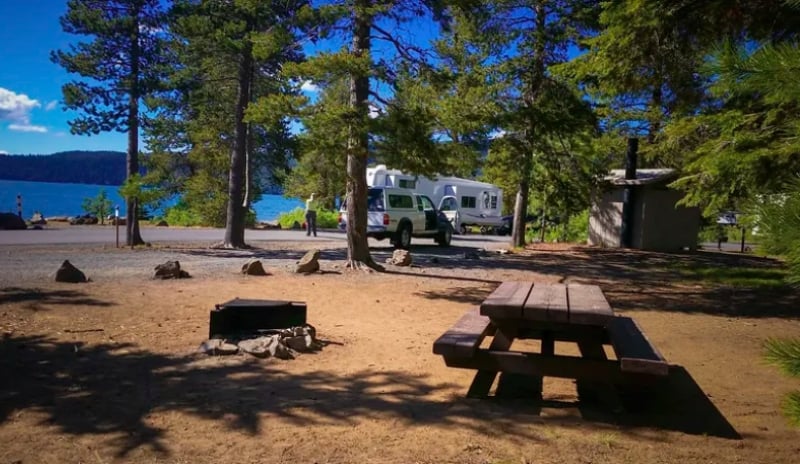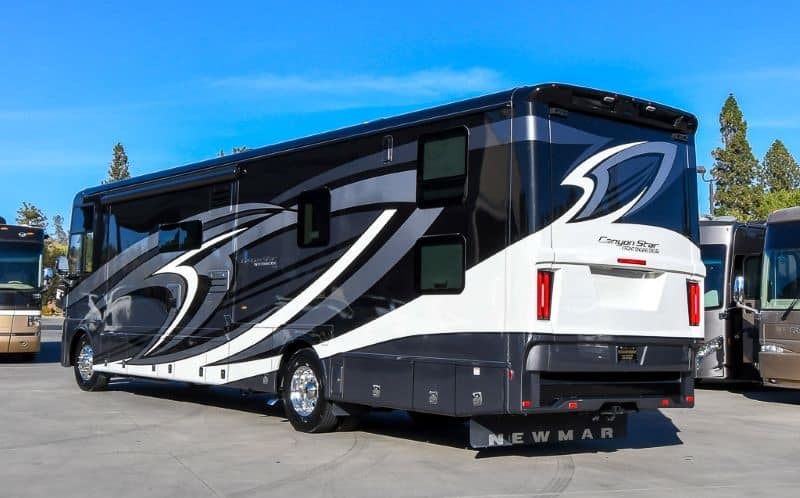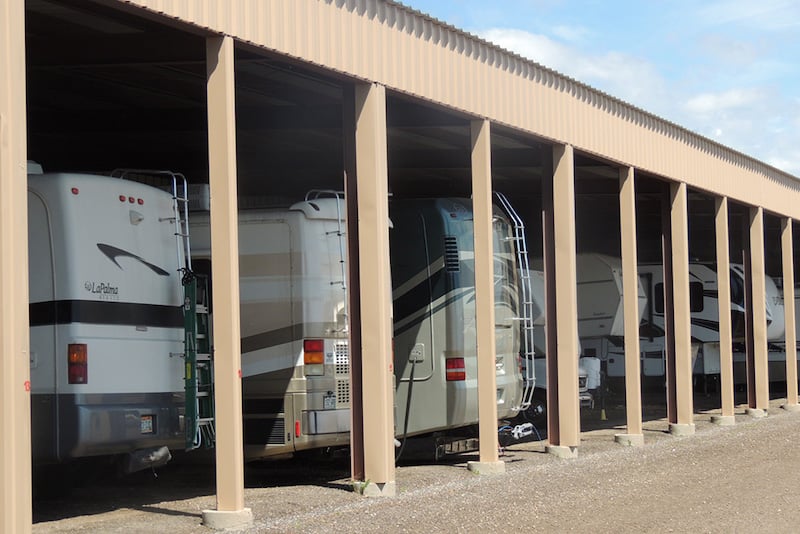Campground site lock fees are trending because it’s a growing financial mechanism for campgrounds across the country. RVers may not like it, but it’s here to stay, and it’s one of the side effects of a booming RV industry.
It would be wrong to feed you the bad side of what a campground site lock fee entails. It would be equally bad to sing its praises. There are always two sides to every coin. Remember, the goal is to determine whether or not they are worth it, and that’s always up to the RVer to decide.
The campground industry has reached a point where campground site lock fees have become common to the point where a campground site lock fee is as regular as swimming pools on the property. The only thing left is to determine whether or not they are worth your time and money.
What is a Campground Site Lock Fee?
A campground site lock fee description requires a dual definition. Just like shopping for the best seat in a football stadium, you’re shopping for the best site in the campground.
You pay the associated site lock fee, and the site you choose is yours for the specified time. The site lock fee is added to the typical cost of the site (usually between $10 and $25).
Why are Campgrounds Charging Lock Site Fees?
Thanks to the aforementioned boom, park space is in very high demand. The fee is the cost of guaranteeing your site. For instance, before the inception of site lock fees, let’s say you reserved a spot in a campground that’s considered large, with a 40’ space.
Also say that you have a 15’ teardrop. Someone else comes along with a 35’ RV, and there are no more spaces available to accommodate an RV that large. Before lock fees, the smaller RV would be bumped over to a smaller site to accommodate the 35’ RV, which would then take your orginal reserved spot.
With a site lock fee paid, you can no longer get bumped from that spot. It’s a campground’s way of optimizing bookings. The flip side is that many RVers view it as a money grab, and perhaps that’s true, to a degree. We’re not here to judge, only to inform.
Which Campgrounds Charge Site Lock Fees?
KOA (Kampgrounds of America) now charges site lock fees in 170 of their 520 parks. Sun Outdoors, Triple R, and Pathfinder Camp Resorts utilize site lock fees, and it’s pretty much a guarantee that all campgrounds already have or will soon have some form of lock fee.
Do National Park Campgrounds Charge Site Lock Fees?
National Park campgrounds aren’t using site lock fees, for now. Making a reservation is the primary method for getting a site in a national park.
While there will be specific amenities you can choose from, choosing a specific site isn’t in the cards. Some National Park campgrounds require reservations months in advance due to popularity.
The Advantages of Site Lock Fees
One of the upfront advantages is the automated nature of the software. While some campgrounds still operate in an “old-school” manner, most have software that takes care of site bookings without the need for a human representative.
Campground Solutions, NewBook, CampSpot, Octorate, Open Campground, Campground Commander, and inReception are just a few examples of popular software available. Another advantage is on the side of the camper. You get the exact site you pay for—nothing more and nothing less.
You don’t have to worry about being moved from your site to accommodate a larger RV. There’s no getting around the next advantage, which is increased revenue for the campground. Campgrounds exchange flexibility for a premium price tag.
The Disadvantages of Site Lock Fees
There are two major disadvantages to site lock fees—one for the customer and one for the campground. As far as the campground is concerned, initiating site lock fees in their business model removes flexibility from the equation.
Prior to site lock fees, campgrounds would simply move guests around when certain accommodations were necessary. Campers wouldn’t lose a spot or amenities, but they might not necessarily keep the same spot they reserved.
The disadvantage for campers is that you might have a 40’ RV parked between the bathroom and a playground, with just enough room to open the slides. In the meantime, your neighbor might be in a Coleman, 4-person tent nestled on a campsite made for a large RV. It’s probably infuriating, but it happens.
Do Campgrounds Make Extra Money on Site Lock Fees?
The idea is to charge a premium and, although flexibility options are lowered, improve revenue by combining the additional fees with fewer cancelations. Apparently, RVers and tent campers alike are more than willing to foot the bill.
The law of supply and demand remains the same. So long as campgrounds offer site lock options for a premium price and campers are willing to pay it, the practice will continue to grow.
It’s difficult to ascertain how much additional revenue flows into any given campground, but the fact that site lock fees are a growing practice speaks volumes.
Are Site Lock Fees Here to Stay?
Site lock fees aren’t going anywhere, and they are growing in popularity. There are a few campgrounds spread across the country that don’t have campground site lock fees, but that may change as corporate entities continue to buy out family-run locations.
But, inevitably, you should expect site lock fees to be a major part of the industry in future years and permanently. So as long as the demand is there and growing, it’s a no-brainer from a purely business perspective.
Is it Worth Paying Campground Site Lock Fees?
For the most part, it’s probably not worth it, with a few exceptions. Being closer to the campground’s bathrooms or other amenities might be preferable to someone who is dealing with a disability or for similar reasons.
If you’re camping with friends, you want to camp next to, paying the campground site lock fees can guarantee all of you will be parked next to each other.
For others, there might be a very specific area of the campground that they just love, and it would be worth it to pay the fee in those instances. Otherwise, you’re essentially paying for a service you already have. When you reserve a site, you get that site or one so similar it doesn’t matter.
Regardless, site lock fees are probably here to stay. If RVing follows the ebb and flow of its history, we may see an “RV cooling period” where many give up the RV Lifestyle. If so, campgrounds may have to give up the campground site lock fees to fill up the empty sites.
Related Reading:
1. 13 Best RV Resorts With Water Parks
2. How Long Will 20 lbs Propane Tanks Last For Fire Pits
3. How Do You Charge an eBike While Camping
4. RV GPS Device vs. RV Navigation App: Which is Better?
About the Author:
Thomas Godwin is a full-time freelance writer with a BFA in Creative Writing, a U.S. Marine, and an avid outdoorsman.
When he’s not writing, he’s raising chickens and Appleyard ducks. Thomas also constructs teardrop campers (attempting to anyway) and kayaks the Blackwater River with his wife, two daughters, and his Dobermans.




